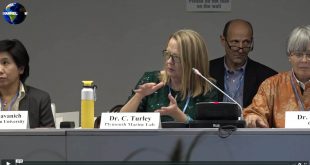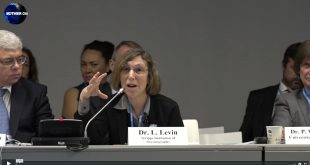Children are disproportionately vulnerable to the impacts of climate change, but are rarely considered in the development , implementation and monitoring of international and national climate change policies and initiatives.
Christine Macalone of Climate Team, Unicef HQ New York, chairs the meeting and introduces:
Kate Gilmore who explores the roles children can & should increasingly play to promote child rights. A powerful Keynote speaker, Kate Gilmore UN Deputy High Commissioner for Human Rights gives further insight to this precious human resource, and the damaging effects that Climate Change can bring, derailing both the physical and mental development of children.
She outlined the need to deeply understand these problems, do what we can to provide for their needs and then empower them requiring a Succession Plan for Power, Privilege and Opportunity. The greatest threat to our children are those of us who are not longer children. We must #Hand it over. We have not left a better world to our children but perhaps we can leave better children to our world.
A message from Shaksi (10 years old) follows with a plea to action based on her day to day experiences in her island community. She asks for voices to rise – not the sea levels.
Professor Sephus Lumina of research Human Rights Law Fort Hare S Africa, Judical advocate in Zambia & UN Committee of Rights of the Child. He speaks of how best to include children and child rights as an international initiative to protect their rights. He makes the connection between the ravages of extreme Climate in indigenous communities resulting often in sprawling slums, with contaminated water supply, with little food security. Exacerbating situations of conflict, home to corruption, exploitation and abuse – in extreme cases with young girls sold as child brides, prostitution and young boys as child soldiers. Professor Sephus cautions that when making plans & policies that the published facts and statistics in Africa should always been verified by first hand observation.
 Mother Channel Environmental, climate change news and media.
Mother Channel Environmental, climate change news and media.



